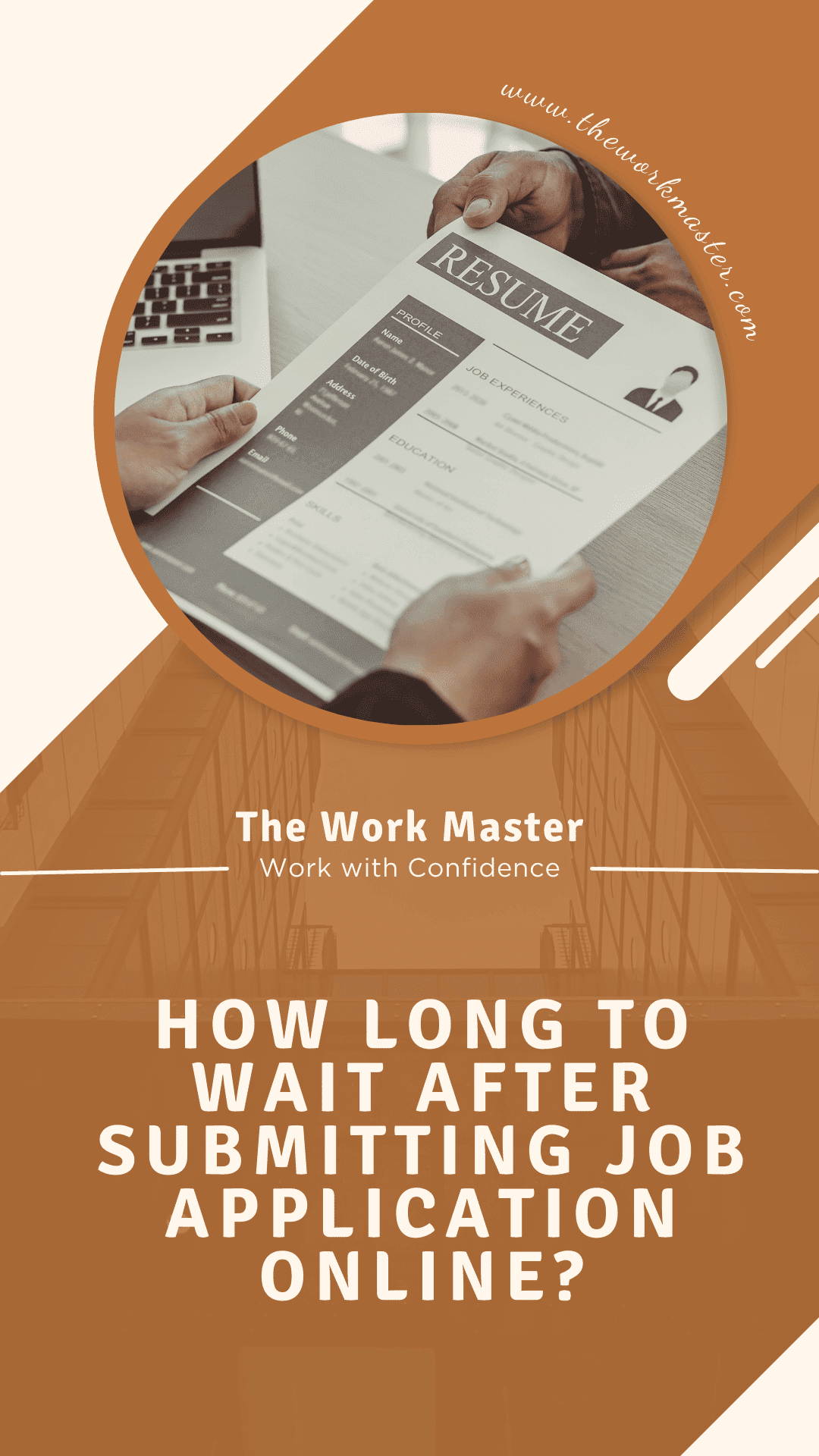Прочети на Български ==> Read in English (US)
Online job applications have become the order of the day in today's employment market. By just clicking a button, you can send your resume and cover letter to several companies within a few minutes.
However, once you press the submit button, a waiting period starts. What is the timeframe for follow-up on your job application? In this article, we will discuss the most effective way to wait after an online job application.
Key Takeaways about How Long to Wait after Submitting Job Application Online
1. Varies by Company: Companies have different timeframes to evaluate job applications. Some may respond within a few weeks, while others can take months or even years to review and screen applicants.
2. Follow Application Instructions: Look at any deadlines or instructions mentioned in the job advertisement. Some employers might provide when applicants should be notified, and it is critical to follow these instructions.
3. Patience is Key: If there are no deadlines, patience is very important. Make sure that you do not try to contact the employer immediately after sending your application because it can be interpreted as too much eagerness or impatience.
4. Set a Follow-Up Timeline: If no reply has been received after a reasonable period (generally one to two weeks), you may write a polite follow-up email indicating your ongoing interest in the position and asking about the progress of your application.
5. Keep Applying: Don’t put all your eggs in one basket. Apply to other jobs while waiting for a reply. This makes available to you several plays and minimizes the effect of any potential hiring delays.
The Standard Waiting Time
As a general rule of thumb, at least one week should pass before you contact the company about your application.
This allows the company to analyze all applications and make a decision. If there is no response after a week, it’s okay to contact and ask about the status of your application.
That said, note that some companies may take a more extended hiring process so it is good to know about your target company’s hiring timeline before contacting them.
The Importance of Timing
The most important aspect of follow-up is timing. You don’t want to seem too desperate or aggressive, but you also don’t want to wait for too long and lose an opportunity.
The most appropriate time to follow up is often in the middle of the week, on a Tuesday or Thursday. This allows the company to have enough time to consider applications that were received in the previous week and also allows them to make decisions before the weekend begins.
The Power of Networking
In the current job market, networking is essential. It is acceptable to contact a person who works at the company you have applied to and ask them about the status of your application.
This can provide you with an inside view of the firm’s recruitment process and may even put you ahead of other applicants. But remember to be careful and professional in doing so.
You do not want to place your contacts in an awkward situation or appear to use them for personal advantage.
The Importance of a Follow-Up
If you are interested in the job and want to get it, then follow up on your application. It also allows you to restate your credentials and showcase your interest in the position.
But make sure to keep your follow-up short and concise. You should not bore the hiring manager with too much information.
The Waiting Game Continues
Following up on your job application, the waiting game is still ongoing. You should be patient and not be disappointed that you do not hear back immediately.
In a recent poll, Indeed found that 48% of respondents said that waiting to hear back from employers is “highly frustrating.”
~ Indeed
Companies are overwhelmed with applications and it takes time to evaluate them all. While waiting, do not stop applying for other positions, and be open-minded.
What if recruiter takes too long to respond?
If a recruiter does not respond within an extended period, it is crucial to be patient and not jump to conclusions regarding the state of your application.
Keep looking for jobs and think about applying to other vacancies so that you have more opportunities. After some time, usually two to three weeks, you can write a polite follow-up email stating that your interest in the position remains and asking about the status of your application.
Recall that the delay in hiring may arise from several reasons; it is, therefore, paramount to maintain a professional attitude during waiting.
The Importance of Patience while Waiting for Job Application
During the waiting period after submitting a job application, patience is one of the most vital virtues. It is important to reduce unnecessary stress and anxiety caused by the hiring process, which can be lengthy and complicated.
Patience enables you to concentrate on other aspects of your job search, including applying for more opportunities or improving your proficiency.
In addition, patience shows professionalism. Employers value applicants who understand the nuances of hiring and can be patient with a detailed assessment.
It’s also a chance to demonstrate your ability to handle uncertainty and remain calm—a quality that is needed in most workplaces.
When waiting, you should use the time to conduct more research on the company, perfect specific skills, or even prepare for possible interviews.
This proactive approach not only shows you are dedicated to the position but also helps in maintaining your interest in professional development.
Finally, patience in the waiting period not only helps with your physical well-being but also in improving your candidacy overall by demonstrating professionalism and flexibility despite uncertainty.
Q&A Section
① How long should you wait after submitting a resume electronically?
Wait about two to three weeks after sending a resume electronically and then think of a follow-up. This gives employers enough time to consider applications and it is recommended that you send a polite follow-up email if no response has been received within this period.
② Should you follow up on a job application?
Yes, it is recommended to follow up with a job application if no response has been received after a certain period (usually one or two weeks).
Sending a brief and courteous follow-up email is an indication of your interest in continuing the hiring process as well as showing that you are proactive.
③ How do you know if you didn't get the job?
Likely, you didn’t get the job if you did not receive any communication after the decision timeline or a standard rejection email following it.
Moreover, if the position is listed as taken on the company’s site or you notice that a job has been reposted, it means they have selected another candidate.
④ How do you politely ask for application status?
A polite way to ask about the status of your application is by sending a brief email stating that you still have interest in the position and requesting politely for an update on your application.
For instance, you can write:
I would like to ask about the status of my application for the position of [position] and inquire whether it is still under consideration. I am happy to wait for further information regarding hiring deadlines. Thank you in advance.
⑤ What to do when waiting for a job response?
During the waiting period, apply to other positions to increase your chances of getting a job. During this period, take the opportunity to improve your skills or qualifications relevant to the job.
Moreover, think about writing a polite reminder email after an appropriate waiting time (usually one to two weeks) to indicate sustained interest in the job.
Conclusion
To summarize, after submitting a job application online the standard waiting time is one week. Nevertheless, timing, networking, and a good follow-up are all factors that influence the hiring process.
Remember to be patient and act professionally throughout the process, and hopefully, you will soon have your dream job.
Grab our free hand-picked
list of remote jobs now!
*Includes 148 websites with multiple remote
job offers organized into 7 categories.
Bonus: You'll receive updates on new free resources as soon as they are live.
+ Best remote job recommendations and little-known freelancing hacks for time-saving.






Comments
Post a Comment